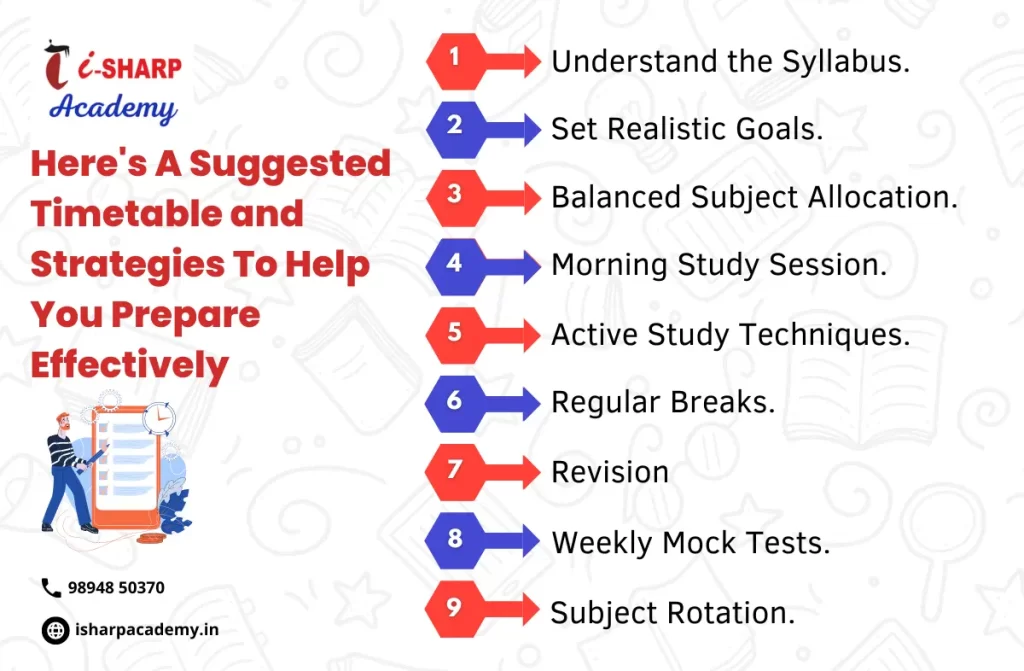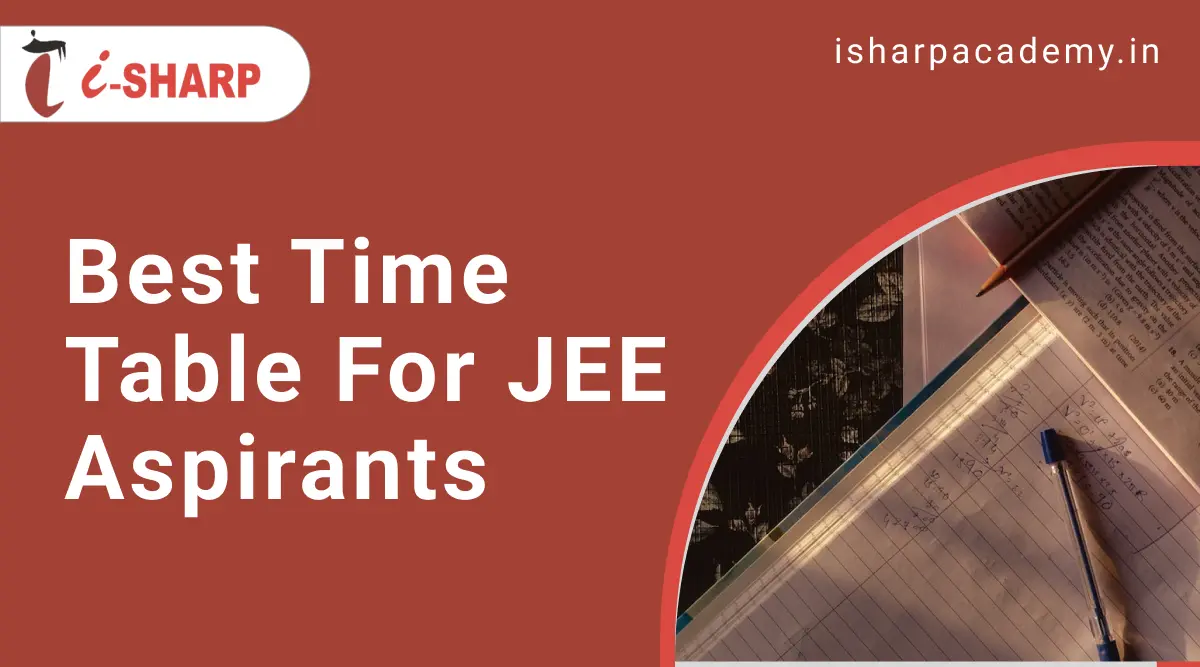Preparing for the Joint Entrance Exam (JEE) can be a daunting task, as the syllabus is vast and requires a systematic approach for effective preparation. In this blog post, we will discuss the JEE syllabus and its importance in creating an effective best time table for jee aspirants. We will also provide tips on how to break down the syllabus into manageable parts.

Overview of the JEE syllabus
The JEE syllabus is based on the NCERT curriculum, but the level of difficulty is higher. The exam covers three subjects – Physics, Chemistry, and Mathematics – and each subject has a different weightage in the exam. Physics and Mathematics have 25% weightage each, while Chemistry has 50% weightage.
Breaking down the syllabus
An effective and best time table for jee aspirants is breaking down the syllabus into manageable parts is important for effective preparation. The syllabus can be divided into topics and subtopics.
The best time table for jee aspirants is that they can allocate time based on the weightage and difficulty level of each topic. For example, if a topic has a higher weightage, aspirants can allocate more time for it. Similarly, if a topic is more difficult, aspirants can allocate more time for it and seek help from a mentor or teacher.
Tips for preparing for each subject
With the perfect timetable for jee aspirants, they can prepare the followings subjects that are discussed below here: –
Physics: Physics has a significant weightage in the JEE and covers topics such as Mechanics, Electrodynamics, Optics, and Modern Physics. To Prepare for Physics, aspirants should focus on understanding the concepts and solving numerical problems. They can also refer to previous year’s question papers to get an idea of the type of questions asked in the exam.
Chemistry: Chemistry is divided into three parts – Physical, Organic, and Inorganic – and covers topics such as Chemical Bonding, Coordination Chemistry, and Thermodynamics. To prepare for Chemistry, aspirants should focus on understanding the concepts and practicing numerical problems. They can also refer to textbooks and study materials to gain a better understanding of the subject.
Mathematics: Mathematics has a significant weightage in the JEE and covers topics such as Algebra, Trigonometry, Differential Calculus, and Integral Calculus. To prepare for Mathematics, aspirants should focus on solving problems and practicing the formulas. They can also refer to study materials and textbooks to gain a better understanding of the concepts.
So, this is the perfect timetable for jee aspirants can follow to score good marks in the JEE exams.
Best Time Table for JEE Aspirants Resources
The best time table for jee aspirants to Prepare for the JEE can refer to multiple resources such as textbooks, study materials, online courses, and previous year’s question papers. It is important to choose the best time table for jee aspirants through the right resources based on personal preferences and learning styles.
Conclusion
In conclusion, understanding the JEE syllabus and breaking it down into manageable parts is important for effective preparation. Aspirants should allocate time-based on the weightage and difficulty level of each topic and follow a systematic study plan which is the golden rule for the best time table for jee aspirants. By following these tips, aspirants can increase their chances of success in the JEE and achieve their career goals.



